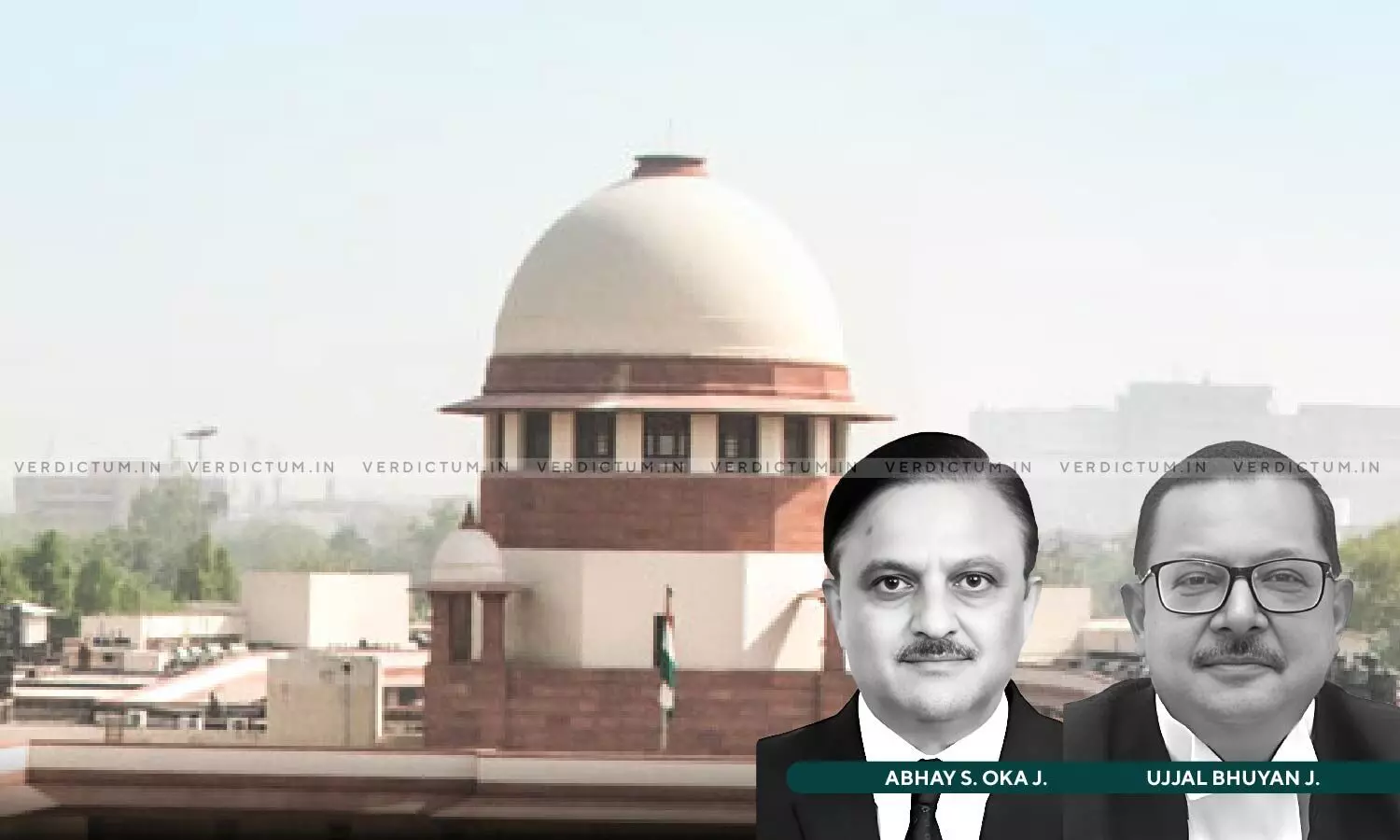
Justice Abhay S. Oka, Justice Ujjal Bhuyan, Supreme Court
There Is No Presumption In law That A Statute Will Be Implemented By State: Supreme Court
 |
|The Supreme Court held so while setting aside an order of the Bombay High Court dismissing a plea seeking the implementation of the Street Vendors (Protection of Livelihood and Regulation of Street Vending) Act, 2014.
The Supreme Court has set aside a Bombay High Court order that dismissed a plea regarding the implementation of the Street Vendors (Protection of Livelihood and Regulation of Street Vending) Act, 2014, and has restored the writ petition for fresh consideration.
The Bench of Justice Abhay S. Oka and Justice Ujjal Bhuyan observed that the High Court failed to examine the case on merits and wrongly presumed that the State Government would implement the 2014 Act in its true spirit.
The Court held that no such presumption exists in law and emphasized that if beneficial legislation is not implemented, it is the duty of the Constitutional Courts to intervene.
The case arose from a petition filed by street vendors seeking proper enforcement of the 2014 Act. The petitioners had sought multiple directions, including the establishment of a Town Vending Committee (TVC), issuance of vending certificates, framing of a street vending scheme, and prevention of coercive actions such as eviction raids and confiscation of goods.
Senior Advocate Sunil Fernandes appeared for the Petitioner, while AOR Aaditya Aniruddha Pande appeared for the Respondent.
The Court noted that the High Court failed to address these issues on their merits. It observed that the petition primarily sought implementation of the 2014 Act, and therefore, the High Court should have examined the claims in detail instead of dismissing them summarily.
"A perusal of the impugned judgment shows that the High Court has not considered the writ petition on merits. As far as prayer clause ‘a’ is concerned, the High Court has observed that as the Street Vendors (Protection of Livelihood and Regulation of Street Vending) Act, 2014 (for short, “the 2014 Act”) is a central Act, there is a presumption in law that it will be implemented in its true letter and spirit by the State Government. No such presumption exists," the Bench observed.
It added, "If a beneficial legislation like the 2014 Act is not being implemented, it is the duty of the Constitutional Court to step in. The very grievance of the appellant was that there is no implementation of the 2014 Act."
Accordingly, the Court restored the writ petition to the Bombay High Court and directed that it be heard by the appropriate Bench on March 21, 2025, at 10:30 AM.
The Court also extended the interim relief granted earlier, preventing any coercive action against the vendors, for an additional three months to allow the High Court to rule on interim relief. "The interim relief granted by this Court on 27th January, 2025 shall continue to operate for a period of three months from today to enable the High Court to hear the parties on the prayer for interim relief. All contentions of the parties are left open to be decided by the High Court," the Bench ordered.
The Bench clarified that all contentions remain open and directed the Registrar (Original Side) of the Bombay High Court to ensure the petition is listed as per schedule. The appeal was partly allowed on these terms.
Cause Title: Colaba Causeway Tourism Hawkersstall Union v. State of Maharashtra [Special Leave To Appeal (C) No(s). 2272/2025]
Appearance:-
Petitioner: Senior Advocate Sunil Fernandes, Advocate Nupur Kumar (AOR), Zainab R Shaikh, Rafiullah Shaikh, Diksha Dadu
Respondent: Advocates Bharat Bagla, Siddharth Dharmadhikari, Aaditya Aniruddha Pande (AOR), Rakesh K. Sharma (AOR), Adviteeya
Click here to read/download the Order